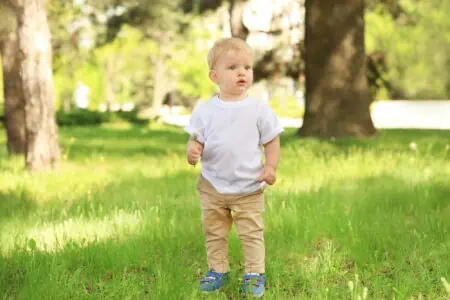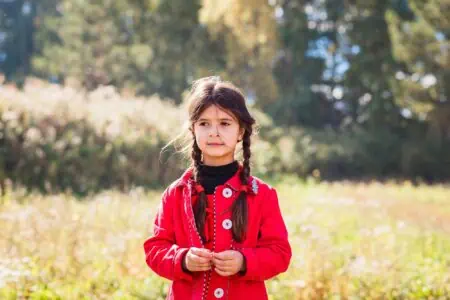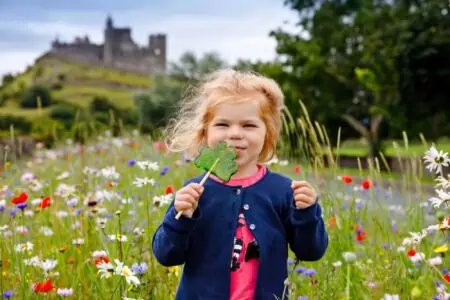When you mention white last names, people don’t often think of one specific thing. They may assume all white surnames are English or refer to anything Americanized, spelling-wise. You may be surprised as to what last names are included altogether!
Get the fascinating facts on white last names without wasting time. There are over 200 surnames in our entertaining guide, along with pertinent information from origin to meaning. Dive in to learn more in one sitting than you may have ever known.
80 Popular White Last Names
Check out the best-known white surnames and where they come from.
- Adams – means “son of Adam,” taken from the Hebrew “adama,” meaning “earth.”
- Anderson – refers to a “son of Ander or Andrew,” from the Greek Andreas, meaning “manly.”
- Bailey – from the French “bailler,” meaning “to deliver,” as an occupational name for a bailiff or steward.
- Baker – an English occupational name for a baker, from the Old English “baecere.”
- Bell – a Middle English occupational name for a bell ringer or bell maker.
- Brown – from the Old English “brun,” for someone with brown hair, clothing, or complexion.
- Carter – an English occupational for someone who drove a cart to transport goods.
- Carver – an English occupational name taken from the Middle English “kerver,” meaning “one who carves.”
- Collins – an Anglo form of the Gaelic “O’Cuilleain,” meaning “whelp” or “young hound.”
- Cook – one of many occupational white “C” last names, derived from the Old English “coc.”
- Cooper – given to a maker of wooden vessels based on the Middle English “couper,” meaning “container.”
- Covington – means “settlement near the cave,” named after a town in Huntingdonshire.
- Cox – for someone living near hills, associated with the Old English “cocc,” meaning “little.”
- Davis – a Welsh patronymic surname meaning “son of David” and a male name meaning “beloved.”
- Delaney – means “dark challenger” in Irish when taken from the original Ó’Dubhshláine.
- Edwards – a patronymic surname meaning “son of Edward,” ranked 14th in Wales and 21st in England.
- Ellington – from the Old English first name Ella or Eli, using the root aelf,” meaning “elf.”
- Evans – means “son of Evan” in Welsh when derived from Ifan, a variant of John.
- Fitzpatrick – an Anglo form of the Gaelic MacGiollaphádraig, meaning “son of the devotee of St. Patrick.”
- Forsythe – originally from the Gaelic Fearsithe, composed of “fear,” meaning “man,” and “sith,” meaning “peace.”
- Foster – an English occupational “F” surname for a forest warden; from the Old English Forseter, meaning “shearer.”
- Gray – was first used in Scotland for someone with grey hair or complexion.
- Green – from the Old English “grene,” for someone living near a village green.
- Hall – from the Old English “heall,” given to someone living or working in a hall.
- Harrington – an Anglo variation of the Gaelic Ó hArrachtáin, meaning “descendant of Arrachtán,” meaning “mighty.”
- Harris – describes a “son of Harry or Henry” and dates back to 12th-century England.
- Hawthorne – originally given to someone who lived near a hawthorn hedge in England.
- Hill – one of the most literal white surnames, referring to a “person who lived on a hill.”
- Howard – related to the Old German Hugihard, meaning “heart-brave” or Hoh-ward, meaning “chief guardian.”
- Huntington – made up of the Old English “hunta,” meaning “hunter,” and “tun,” meaning “settlement.”
- Jackson – means “son of Jack (or John)” in English and ranks 24th in England and Wales.
- James – one of the most popular English last names and whitest of given names; means “son of James.”
- Johnson – means “son of John” and originated with the Hebrew Yochanan, meaning “God is gracious.”
- Jones – the most popular Welsh surname, meaning “son of John” or “son of Ieuan/Iowan.”
- Kelly – the Anglo spelling of the Gaelic O’Ceallaigh, meaning “son of the bright-headed one.”
- Kensington – a place name made up of the Old English Cynesige and “tūn,” meaning “farmstead estate.”
- King – comes from the Old English “cyning,” originally meaning “tribal leader.”
- Kingsley – originally appeared in Old English as Cyningesleah, meaning “from the king’s wood or meadow.”
- Langley – based on the personal name Langlif, which means “long life” or “long body.”
- Lee – is composed of the Old English “lēah,” meaning “meadow” or “forest clearing.”
- Lewis – a version of the Latin Ludovicus and German Ludwig, meaning “famed battle.”
- Lockhart – from the Old French “locart,” referring to “one who squints” or is “cross-eyed.”
- Martin – from the Latin surname Martinus, referring to the Roman god of war, meaning “warlike.”
- Miller – an occupational name for those who owned or operated mills in England and Scotland.
- Montgomery – an English-Norman surname referring to Sainte-Foy-de-Montgomery and Saint-Germain-de-Montgomery in France.
- Moore – from the Middle English “mor,” meaning “open land” or “bog,” for those living near one.
- Morgan – associated with the Welsh Morcant, a patronymic name for a “son or descendant of Morgan.”
- Morris – related to Morres, an “M” surname given to a “family living on the moors.”
- Murphy – an Anglo form of the Gaelic Ó’Murchadha, for a “descendant of Murchadh,” meaning “sea warrior.”
- Nelson – means “son of Neal,” from the Gaelic Niall, meaning “champion.”
- Parker – means “keeper of the park” and is an occupational name for gamekeepers in England.
- Peterson – means “son of Peter” across Scandinavia, based on the Greek “petros,” meaning “rock.”
- Phillips – means “son of Phillip” from the Greek surname Philippos, meaning “friend of horses.”
- Prescott – made up of the Old English “preost,” meaning “priest,” and “cot,” meaning “cottage.”
- Reed – for someone with red hair or a ruddy complexion, from the Old English “read,” meaning “red.”
- Reeves – from the Middle English “reve,” relating to someone who worked “at the reeve’s (house).”
- Richardson – means “son of Richard” or “powerful ruler,” inspired by the English King Richard I.
- Rodgers – a patronymic form of Rodger, which means “famous warrior” in German.
- Scott – first used by Uchtredus Scoti in 12th-century Scotland; an ethnic name for a Scottish person.
- Sinclair – comes from the Latin “clarus,” meaning “pure,” “renowned,” and “illustrious.”
- Smith – is an Old English occupational name for a blacksmith, top among American white last names.
- Sterling – a variation of the English Easterling, which denotes English currency in the pound sterling.
- Stewart – from the Old English “stigweard,” meaning “household guardian,” or the Gaelic Stiùbhart, meaning “steward.”
- Taylor – an Anglo-French occupational surname from the Old French “tailleur,” meaning “cutter of cloth.”
- Thomas – like the first name, Thomas comes from the Aramaic “t’om’a,” meaning “twin.”
- Thompson – is used in England, Ireland, and Scotland, meaning “son of Thom.”
- Thorne – derived from the Swedish “törne,” meaning “rose bush” or refers to an actual “thorn.”
- Townsend – for someone living outside a village, when based on “toun(es)ende.”
- Turner – an English occupational name for someone who made small objects of wood or metal.
- Wainwright – for someone who made carts or wagons, from the Old English “aegn-wyrhta.”
- Walker – dates back to the 13th century, denoting someone who thickened fabric by stepping on it.
- Ward – an occupational English surname from the Old English “wearde,” meaning “watch” or “guard.”
- Watson – means “son of Walter” when taken from its medieval nickname Watt.
- Whitaker – refers to a “wheat field” or “white field” in Old English.
- White – the most literal of American white surnames, given to someone with blond hair.
- Whitman – originally appeared as the Old English Hwītmann, meaning “white man.”
- Williams – for a “son or descendant of William,” meaning “desire” and “protection.”
- Wilson – a patronymic form of William, meaning “Will’s son,” which first appeared in the 11th century.
- Winslow – a place name in Buckinghamshire, England, which also means “Wine’s hill” in Old English.
- Young – from the Middle English “yonge,” originally given to a younger son.
80 Common White Surnames
These white last names mix patronymic, occupational, and geographical name traditions.
- Abercrombie – named after the Scottish Abarcrumbach, meaning “confluence of rivers at a bend.”
- Abernathy – refers to the “mouth of the river Nethy” in Scottish-Pictish.
- Albright – a common form of the German Albrecht, related to Albert, meaning “noble bright.”
- Alderman – comes from the Old English “ealdorman,” a title meaning “elder.”
- Aldridge – means “son of Alderich” but relates to the Old English Alrewic, meaning “alder dwelling.”
- Allerton – the name of several English towns based on “alra tūn,” meaning “settlement by the alders.”
- Arnold – from the Germanic Arnwald, composed of “arn,” meaning “eagle,” and “wald,” meaning “rule.”
- Ashcroft – a place name in Lancashire, England, also means “ash tree enclosure.”
- Ashford – means “ford of ash trees” in Old English and is the name for multiple towns.
- Barnes – from the Old English “beorn,” which also means “warrior” in Norse.
- Beaumont – means “beautiful mountain” in French and arrived in England during the Norman Conquest of 1066.
- Brixton – originally the unique Brixistane, which denotes the stone of Brixi, an ancient leader.
- Bryant – is based on the Celtic first name Brian and dates back to the 12th century.
- Burns – named after Scottish locations like Burnis or Burnhouse, which uses the root “burn,” meaning “stream.”
- Butler – an English occupational name describing someone who worked in a home’s wine cellar.
- Callahan – an Anglo form of the Gaelic Ó’Ceallacháin, meaning “descendant of Ceallachán, meaning “bright-headed.”
- Carlin – first taken from the Irish surname Cearbhalláin, from Cearbhall, meaning “manly.”
- Coleman – from the Irish Ó’Colmáin, an occupational surname for someone who burned charcoal.
- Collier – from the Middle English “colier,” for a maker or seller of charcoal or a miner.
- Connor – originally from the Irish Conchobhar,” meaning “lover of wolves” or “master of hounds.”
- Dixon – originated in the 14th-century as a patronymic surname for a “descendant of Richard.”
- Ellery – a less popular variation of English-Norse surnames, which means “alder nook.”
- Ellis – comes from the Welsh first name Elisedd and “elus,” meaning “kindly” and “benevolent.”
- Ellsworth – based on the Old English first name Eli and “worth,” meaning “farm” in Old English.
- Finch – from the Old English “finc,” a nickname for a small and cheery person.
- Fisher – is based on the Middle English “fischere,” an occupational name for a fisherman.
- Garrett – is the Irish form of Gerard, from “gari,” meaning “spear,” and “hard,” meaning “bravery.”
- Graham – refers to the English town of Grantham, meaning “gravel area” and “gray homestead.”
- Griffin – for a “son or descendant of Griffin,” from the Welsh Griffith.
- Haley – originally the Gaelic O’Ealaighthe, from “ealadhach,” meaning “ingenious,” also means “claimant.”
- Hamilton – is made up of the Old English “hamel,” meaning “crooked,” and “dūn,” meaning “hill.”
- Harlow – among white last names and place names, meaning “rock hill” or “army hill.”
- Harriman – an English occupational name composed of Harry and the Middle English “man,” meaning “manservant.”
- Hicks – a German patronymic variation of Hick or Huck, both nicknames for Hugo.
- Holmes – the plural of the Old English “holme,” meaning “flat island.”
- Hope – given to someone living in a “remote enclosed place” from the Old English “hop.”
- Hunter – an occupational surname derived from the Old English “huntian,” meaning “to hunt.”
- Huxley – from the Old English given name Hucc, along with “lēah,” meaning “woodland clearing.”
- Kennedy – one of the most famous white surnames from the Gaelic Ó’Ceannéidigh.
- Langdon – means “long hill slope” in Old English and is named after a town in Cornwall, England.
- Ledger – means “spear tribe” when derived from the Old German Leodegar.
- Lennon – an Anglo version of the Gaelic Ó Lonáin, for a “descendant of Luinín.”
- Long – an 11th-century Anglo-Norman nickname once used for “the tall man.”
- Madden – an English spelling for the Gaelic Madadhan, meaning “little dog.”
- Mallory – from the Old French “malore,” a nickname for someone “ill-fortuned” or “unlucky.”
- Mason – a French surname for a stoneworker, based on the French Macon or Masson.
- Monroe – refers to the “mouth of the River Roe,” a river located in Northern Ireland.
- Myers – both an English and German occupational name for a “steward” or “bailiff.”
- Nixon – taken from the Middle English Nik(k)e, a nickname for Nicholas.
- Palmer – from the Old French “paumer,” for someone who took a pilgrimage to the Holy Land.
- Patterson – means “son of Peter” or “son of Patrick” from the Latin Patricius, meaning “nobleman.”
- Pendleton – a location name based in Lancashire, England, meaning “overhanging settlement.”
- Perry – from the Middle English “pirie,” meaning “pear-tree,” related to the French Pierre.
- Porter – a French occupational name derived from “porteur,” for a castle or monastery janitor.
- Powell – among the Welsh patronymic names, meaning “son or descendant of Hywell or Howell.”
- Raleigh – means “deer’s meadow” and is growing in popularity as a unisex baby name.
- Redding – means “son of the red-haired” and originally appeared as Reading, a town in England.
- Reynolds – means “son of Reynold,” from the Germanic Reginald, meaning “powerful ruler.”
- Ross – a Scottish surname from “ros,” meaning “promontory” or “headland” in Gaelic.
- Russell – from the Old French “rous(e),” meaning “reddish” as a nickname for a redhead.
- Sanders – means “son of Alexander,” which uses the nickname Xander, meaning “defender of the people.”
- Shaw – from the Old English “sceaga,” meaning “dweller by the wood,” for someone near a thicket.
- Simmons – based on the given name Sigmund, meaning “victorious protector,” associated with the Old Norse “sig.”
- Simpson – for the “son or descendant of Simon,” the complete form of Sim or Simme.
- Standish – made up of the Old English “stān,” meaning “stone” or “rock,” and “edisc,” meaning “enclosure.”
- Stevens – dates back to the 14th-century for the “son or descendant of Steven.”
- Stratton – from the Old English “strǣt,” meaning “paved road,” and “tūn,” meaning “settlement.”
- Sullivan – means “dark eyes” in Irish-Gaelic, from “súil,” meaning “eye,” and “dubh,” meaning “black.”
- Thornton – means “from a thorn bush enclosure,” an Anglo version of the Gaelic Mac Sceacháin.
- Tucker – an occupational surname from the Old English “tucian,” meaning “to torment.”
- Wadsworth – based on the Old English first name Wæddi, along with “worth,” meaning “enclosure.”
- Wagner – originally appeared as the German Waganari, meaning “wagonmaker” or “wagon driver.”
- Wakefield – means “Waca’s field,” from the Old English “wacu,” meaning “wake,” and “feld,” meaning “field.”
- Wallace – used for any “foreigner,” or specifically a “Celt” or “Welshman.”
- Washington – taken from the Old English given name Hwassa and “tūn,” meaning farmstead estate.”
- Webb – an English occupational name for a “weaver,” from the Middle English “webbe.”
- Withers – though its meaning is unclear, it may refer to “wood,” “warrior,” or “willow.”
- Witherspoon – composed of the Scottish “wether,” meaning “sheep,” and “spang,” meaning “narrow strip of land.”
- Worthington – originated as an Old English place name for a “farmstead estate” or “fenced farm.”
- Wright – from the Old English “wryhta,” an occupational name for a woodworker.
80 Uncommon White Last Names
Discover white last names that aren’t at the forefront of popularity.
- Adler – means “eagle” in German; also for someone from Andlau in Alsace.
- Aitken – a medieval variation of Adam, from the Hebrew “adama,” meaning “earth.”
- Allard – a spelling variant of Alard, from the Germanic Adelhard, meaning “noble hardy.”
- Appleton – describes various locations in England, from the Old English “æppeltūn,” meaning “orchard.”
- Bailiff – an English occupational name for an officer, from the Old French “baillif.”
- Bancroft – also a caucasian boy’s name meaning “field of beans” or “dweller near the bean farm.”
- Barlowe – originated in the 15th century from the Old English “bere hlāw,” meaning “the bare hillside.”
- Beckett – from locations in Berkshire and Devon; means “bee cottage” or “bee shelter.”
- Berrycloth – first referred to a place in England called Barrowclough, meaning “grove’s steep slope.”
- Biddlecombe – among rare white surnames, meaning “Bitta’s valley” and “from Bittiscombe,” in Somerset.
- Biffle – is an American version of the German Büffel, meaning “buffalo,” a nickname for a loud person.
- Birdwhistle – all the Birdwhistles lived in Kentucky in 1840, which means “where birds nest.”
- Bolton – consists of the Old English “bothl,” meaning “dwelling” or “house,” and “tūn,” meaning “settlement.”
- Bread – appeared as Brede in 1220, based on the Old English “brǣdu,” meaning breadth.”
- Caddel – comes from the Welsh “cad,” meaning “battle,” also appears as Cadle.
- Caskcut – is anything but basic among Irish or English surnames that looks like “casket.”
- Cassidy – based on the Gaelic given name Caiside, meaning “clever” or “curly-haired.”
- Collymore – a possible English variant of Cullimore, from a place name, in Devon.
- Courtland – from the Dutch Kortland, composed of “kort,” meaning “short,” and “land,” meaning “land.”
- Crawford – inspired by towns in England and Scotland, meaning “ford of the crows.”
- Cromwell – comes from the Old English “crumb,” meaning “bent,” and “well(a),” meaning “stream.”
- Culpepper – from the Old French “coillir,” meaning “to collect,” and “pep(p)er,” meaning “pepper.”
- Curran – also appears as O’Corrian and means “dagger” or “hero” in Irish.
- Dankworth – related to the German first name Tancred, along with the Old English “worth,” meaning “farmstead.”
- Darby – means “deer park” in Old English and describes someone from Derbyshire, England.
- Dawson – given to the “son or descendant of Dawe, a diminutive of David.
- Downs – originally the Irish Downes, given to those who lived on a “dun,” or “hill.”
- Driscoll – an Anglo form of the Gaelic Ó’Eidirsceóil, meaning “descendant of the messenger.”
- Easton – from the Old English Ēadstānestūn, meaning “settlement of Ēadstān,” meaning “prosperity stone.”
- Edevane – a Welsh-Cornish surname taken from the Old English “ead,” meaning “prosperity” or “happiness.”
- Elrod – linked to the Germanic first name Alaric, meaning “all-powerful” or “ruler of all.”
- Elsher – a geographical last name for someone living “near alders,” from the German “else.”
- Eubank – composed of the Old English “ēow bank(e),” referring to Yew Bank in Cumberland.
- Felch – a nickname for a blond person, based on the Middle German “falch,” meaning “yellow.”
- Fellows – from the Old English “fēolaga” and the Old Norse “félagi,” meaning “to place money.”
- Fernsby – composed of the Old English “fearn,” meaning “fern” and the Danish suffix “–by,” meaning “settlement.”
- Finnegan – derived from the Irish Fionnagán and its nickname Fionn, meaning “fair-haired.”
- Fleet – from the Old English “flēot” as a surname for someone living near an estuary.
- Fletcher – an occupational name for an arrow-maker, from the French “flechier.”
- Ford – for someone who lived near a Ford, referring to a “shallow river crossing.”
- Gannon – an English spelling of the Gaelic MacFhionnáin, from “fionn,” meaning “white” and “fair.”
- Gastrell – relates to other Norman surnames, although its meaning is unclear.
- Gatlin – taken from the Old German “gaedling,” meaning “companion” or “cousin.”
- Gaylord – derived from the Old French “gaillard,” meaning “lively” and “spirited.”
- Governor – was originally the French “gouverneur,” for someone working at a royal court.
- Hansley – uses the German personal name Hans, a nickname for Johannes or John.
- Harkleroad – an Americanized spelling of the German Herkelrath, for someone from Herkenrath in the Rhineland.
- Hayes – from the Gaelic O’Aodha, meaning “descendant of Aodh,” the Irish god of fire.
- Hendrix – a Dutch and German patronymic surname meaning “son of Hendrik.”
- Hightower – made up of the Old English “heah,” meaning “high,” and “torr,” meaning “tower.”
- Holt – means “small wood” or “grove of trees” when based on the Old English “wald.”
- Humblet – a Belgian last name taken from the Old French “humble,” meaning “modest.”
- Jagger – an English occupational surname given to someone who owned packhorses.
- Keller – means “cellar” or “basement,” used as an occupational name for a winemaker.
- Laurier – describes the “laurel plant” in French and mostly appears in French-Canadian Quebec.
- Loughty – composed of the Old English “loch,” meaning “lake” and the suffix “-ty,” meaning “by.”
- Madison – a unique spelling of the English patronymic surname Mathieson, meaning “son of Matthew.”
- Marley – means “marshy meadow,” “pleasant wood,” or “marten wood,” from the Old English “myrig.”
- Miracle – another form of the German Maracle, which also means “miracle wonder” in French.
- Pershing – an Anglo variation of the German surname Pfersching, an occupational name for a peach grower.
- Pierce – means “descendant of Peter,” from the male name Piers, a form of Peter, meaning “rock.”
- Pusett – a variation of the Swedish-Walloon Pousette, which initially appeared as Poncet.
- Ragsdall – from the Germanic given name Ragulf, meaning “wolf advice or counsel.”
- Ravenscroft – a location in Cheshire, England, from the Old English Hræfncroft, meaning raven enclosure.
- Relish – means “taste” or “flavor,” derived from the Old French “relaisse,” meaning “something remaining.”
- Remington – composed of the Old English “rima,” meaning “edge” and the river Ing’s Brook.
- Ridlehoover – an English spelling of the German Reidelhuber and a nickname for a “coarse farmer.”
- Sallow – derived from the Middle English “salwe,” referring to a “sallow” tree, a type of willow.
- Sharpe – a medieval nickname using the Old English “scearp,” for a “smart” or “sharp” person.
- Slora – related to the Gaelic “sluagdach,” meaning “leader,” associated with the Scottish Davidson clan.
- St. James – the name of various English locales dedicated to the biblical Saint James.
- Thatcher – an occupational name for someone who covered roofs in straw, from the Old English “thæccan.”
- Tuffin – from the medieval Tiffania, originating from the Greek “theos,” meaning “god,” and “phainein,” meaning “appear.”
- Tumbler – refers to a medieval acrobatic performer from the Old English “tombere,” meaning “acrobat.”
- Undergrove – describes a “grove of shrubs or low trees” as an English geographical surname.
- Villan – from the French “villein,” denoting a “tenant” or “serf,” existing in feudal communities.
- Whitlock – means “white enclosure,” from the Old English “hwit,” meaning “white,” and “locc,” meaning “lock.”
- Wixted – for those “from Wickstead” in Cheshire or Wiltshire, England; describes a “dairy farm.”
- Yarrow – refers to certain English towns with rivers, linked to the Welsh “garw,” meaning “rough.”
- Yearwood – means “forest clearing” and arrived in England from Scandinavia around 1000 CE.







